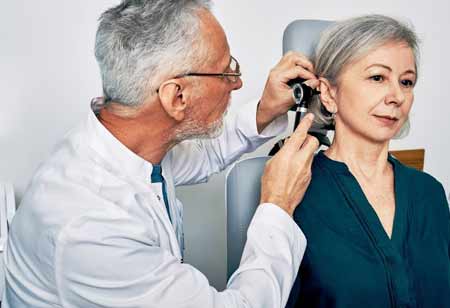Exploring the Benefits of Seeing an Audiologist for Hearing Care
Visiting an audiologist for hearing care assures proper treatment, improves one's lifestyle, and serves as a hearing health companion.

By
Medical Care Review | Tuesday, September 06, 2022
Stay on top of your health and well-being with exclusive feature stories on the top medical clinics and treatment centers, expert insights and the latest news delivered straight to your inbox. Subscribe today.
Visiting an audiologist for hearing care assures proper treatment, improves one's lifestyle, and serves as a hearing health companion.
FREMONT, CA: According to figures from the National Institutes of Health (NIH), 37 and a half million adults in America have hearing difficulties. Hearing aids can help around 28.8 million people with hearing impairments, accounting for 15 percent of the population. This figure has resulted in an alarming increase in OTC hearing aid sales and the growth of hearing aid distributors.
An audiologist is a doctor with specialized training in hearing health. Audiologists specialize in identifying all forms of hearing-related health concerns, developing treatment programs, and providing follow-up care. Their duty extends beyond hearing care to include the treatment of other hearing-related illnesses and balance abnormalities. They also aid in managing the following conditions:
● Preventing hearing loss
● Dizziness and balance.
● Hearing loss
Significant reasons for seeing an audiologist for hearing healthcare
Delivers appropriate treatment: The audiologist's examinations and diagnoses assist them in developing a treatment plan that is tailored to their patient's individual situation. In certain circumstances, the treatment may be as easy as removing earwax or a minor growth from the ear canal. They also offer therapeutic tinnitus treatments and hearing protection recommendations and occasionally recommend and equip their patients with hearing aids and other auditory assistive devices.
Screening for hearing loss: Audiologists provide a comprehensive examination of the patient's ears and screening and testing for hearing loss. Their examination can detect structural abnormalities that may restrict or obstruct the hearing route, while additional testing determines the patient's ability to hear various pitches and volumes of sound. An audiology screening can offer the information needed to diagnose and cure hearing loss or other hearing-related problems.
The hearing health companion: Because the audiologist's commitment to their patient's hearing health extends beyond simply providing them with a hearing aid, they become their lifelong hearing health companion. People's surroundings and needs change as they age and new hearing health concerns emerge. An audiologist continues to provide follow-up care by assessing the efficacy of treatment options in response to these changes and problems. This could include various therapies and treatment choices, such as, but not limited to, hearing aid adjustments.
Transforming one's lifestyle: Audiologists want their patients to have the best quality of life and the independence they deserve. Audiologists offer therapies designed to improve patients' lives, providing them with the most benefits with the fewest disturbances and discomforts feasible. The hearing healthcare audiologists provide allows them to enjoy interactions with family and friends while eliminating misunderstandings and frustration caused by misinterpretation.







